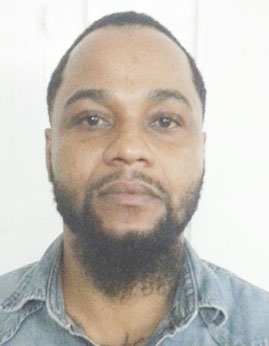The attorney for Troy Thomas, whom the state is hoping to extradite to the United States to face a charge for murder, yesterday maintained that as a Guyanese citizen he has a right to remain here.
Attorney Prithima Kissoon was at the time presenting her client’s case before Justice Jo-Ann Barlow, who is considering an application on whether the Magistrate’s Court can proceed to hear the extradition proceedings against Thomas.
She argued that, among other things, because of conflicting laws on the issue, her client has a legitimate expectation of not having to face extradition.
Thomas, of South Ozone Park, Queens, New York, is wanted by US authorities for the December 11th, 2011 murder of Keith Frank.
Kissoon expressed the view that though the Fugitive Offenders Act provides for the extradition of persons to a third country, that law had not been brought into domestic law and, therefore, her client should not be extradited.
Noting it as an issue with which the court will have to deal in determining the challenge before it, the judge pointed to amendments made to the legislation, which empowers the Home Affairs (now Public Security) Minister to decide whether to extradite or not as he sees fit.
Referencing case law, Kissoon, in response, maintained that notwithstanding this her client has a legitimate expectation of not being sent back to the US as there are laws which stand in contravention to the Fugitive Offenders Act.
It was against this background that she argued that the United States of America (Extradition) Order in Council of 1935 does not form part of the domestic laws of Guyana.
For her part, however, Assistant Solicitor General Beverly Bishop-Cheddi advanced that the 1931 Treaty remained in force and that it was sufficient for the state to show that prior to 1966 an arrangement for extradition existed between the then colonised British Guiana and the United States.
Accordingly, she said that there is provision for the “existing arrangement.”
Meanwhile, bolstering the case for the state, Solicitor General Kim Kyte-Thomas advanced that the practice of states rendering fugitives to each other is no strange occurrence, even in the absence of extradition proceedings.
To this end, she referenced the case of convicted Guyanese drug lord Roger Khan, whom she said had been handed over to US authorities after having been found and arrested in Suriname.
She noted that while he was being sought by US authorities in Guyana and Trinidad, he was found in Suriname and handed over by that government to the United States government.
Such an arrangement, she said, is an “international law fact.”
Noting that the court had taken judicial notice of the fact that the applicant before it bears the name Mervin Williams, the judge sought an explanation from Kissoon for the reason he has distanced himself from the name Troy Thomas, which is contained in documents from the proceedings before the Magistrate’s Court.
The judge said that the Magistrate’s case jacket recorded the applicant as having answered to the name “Troy Thomas,” and to statements also being signed with the initials “T.T.”
Kissoon, however, said that her client’s name was Mervin Williams.
At the previous hearing, the judge had ordered attorney Nigel Hughes, who also represents Thomas, to remedy defects in his client’s affidavit, which bore no name or other material particulars.
In the proceedings before the Magistrate’s Court, the applicant had, at all times, answered to the name “Troy Thomas.”
Having heard the arguments, Justice Barlow said that copies of her written ruling will be made available to both sides on or before June 15th.
If, however, the written ruling is not ready for that date, the judge said she will instead deliver the ruling orally in court at 11.30 on June 15th.
Thomas was apprehended earlier this year by ranks of the Guyana Police Force at Liliendaal, East Coast Demerara and has remained in custody since then.









